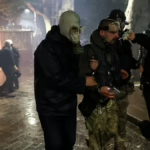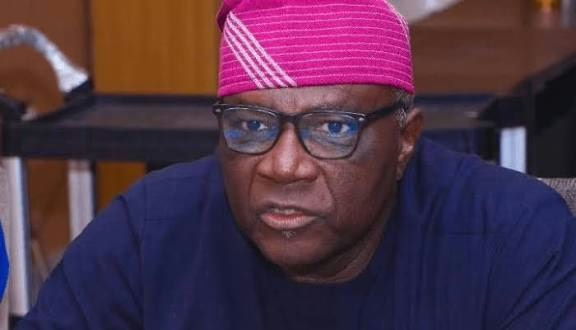The Nigerian Presidency has president-27yr-sentence/” title=”Trump Erupts in Fury After Former Brazilian … Sentenced to 27 Years in Prison”>strongly rebuked U.S. Senator Ted Cruz for his accusations suggesting that Nigerian authorities are either complicit in or indifferent to the violence against Christians perpetrated by Islamist militants.
Senator Cruz, a Republican representing Texas, publicly charged Nigerian officials last Friday with “overlooking and even enabling the mass killings of Christians.” He also introduced the Nigeria Religious Freedom Accountability Act, a bill aimed at imposing sanctions on those deemed responsible.
In response to these allegations on X (formerly Twitter), Bayo Onanuga, the Special Adviser to the President on Information and Strategy, labeled the senator’s claims as “unfounded, harmful, and deceptive.”
Onanuga clarified that Nigeria’s security issues are primarily driven by terrorism, armed banditry, and widespread criminal activities rather than religious discrimination. He highlighted the country’s longstanding tradition of religious coexistence, pointing out that extremist factions like Boko Haram and northern bandits have indiscriminately targeted both Muslim and Christian communities.
RELATED: Otti expresses optimism over Nnamdi Kanu’s imminent release following meeting with President Tinubu
“Senator Cruz, cease spreading these fabricated and damaging falsehoods about Nigeria,” Onanuga urged. “There is no religious conflict here. Boko Haram terrorists attack all civilians, including farmers and soldiers, regardless of faith. Similarly, bandits in the North-West have assaulted worshippers inside mosques. Christians are not singled out.”
The senator’s remarks came in the wake of reports that Boko Haram militants had seized control of Kirawa, a border town in Borno State, displacing over 5,000 inhabitants who fled to neighboring Cameroon.
Introduced to the U.S. Senate in September 2025, Cruz’s proposed legislation seeks to classify Nigeria as a Country of Particular Concern under the International Religious Freedom Act. The bill advocates for targeted punitive measures such as asset freezes and travel restrictions against Nigerian officials, judges, or law enforcement personnel accused of enforcing blasphemy or Sharia laws or tolerating religiously motivated violence.
Additionally, the legislation mandates that Boko Haram and ISIS-West Africa remain designated as Entities of Particular Concern. It also includes a retrospective 10-year period for identifying officials who may be held accountable. However, the bill permits the U.S. Secretary of State to waive sanctions if Nigeria halts the enforcement of blasphemy laws or if extremist groups cease their activities.

















